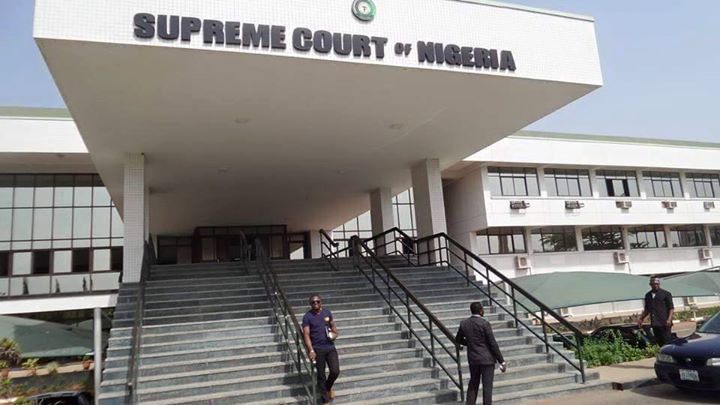- Recall that the EFCC was established by an Act of the National Assembly on December 12, 2002, by the then administration of former President Olusegun Obasanjo.
- According to the court, the EFCC Establishment Act did not require any form of ratification by the Houses of Assembly of the 36 states of the federation since it was not a treaty but a convention.
The Supreme Court has dismissed a lawsuit filed by 16 states challenging the legitimacy of the Economic and Financial Crimes Commission (EFCC) Act.
The court’s decision was delivered by Uwani Abba-Aji, who led a seven-member panel of justices, stating that “the EFCC Act, which is not a treaty but a convention, does not need the ratification of the houses of assembly”.
PRIOR DEVELOPMENT
The initial lawsuit challenging the EFCC’s legitimacy was filed by the Kogi state government, with 15 other states later joining the suit.
The states argued that the national assembly failed to follow the correct procedure in enacting the EFCC Act, specifically section 12 of the 1999 constitution.
They claimed that domesticating a convention requires approval from a majority of state houses of assembly, as stated in section 12 of the constitution.
The states also argued that the procedure for domesticating the convention was ignored during the passage of the EFCC Act and similar laws.
Furthermore, they stated that the EFCC Act cannot be applied to states that did not give their consent.
The applicants also challenged the powers of the Nigerian Financial Intelligence Unit (NFIU) and the Independent Corrupt Practices Commission (ICPC).
They sought a declaration that the federal government, through the NFIU, lacks the power to issue directives on the administration and management of state funds.
They also sought a declaration that the EFCC, NFIU, or any federal agency cannot investigate or arrest anyone for offenses related to state fund administration.
Six states — Adamawa, Ebonyi, Anambra, Jigawa, Benue, and Enugu — withdrew from the suit in the following days.
